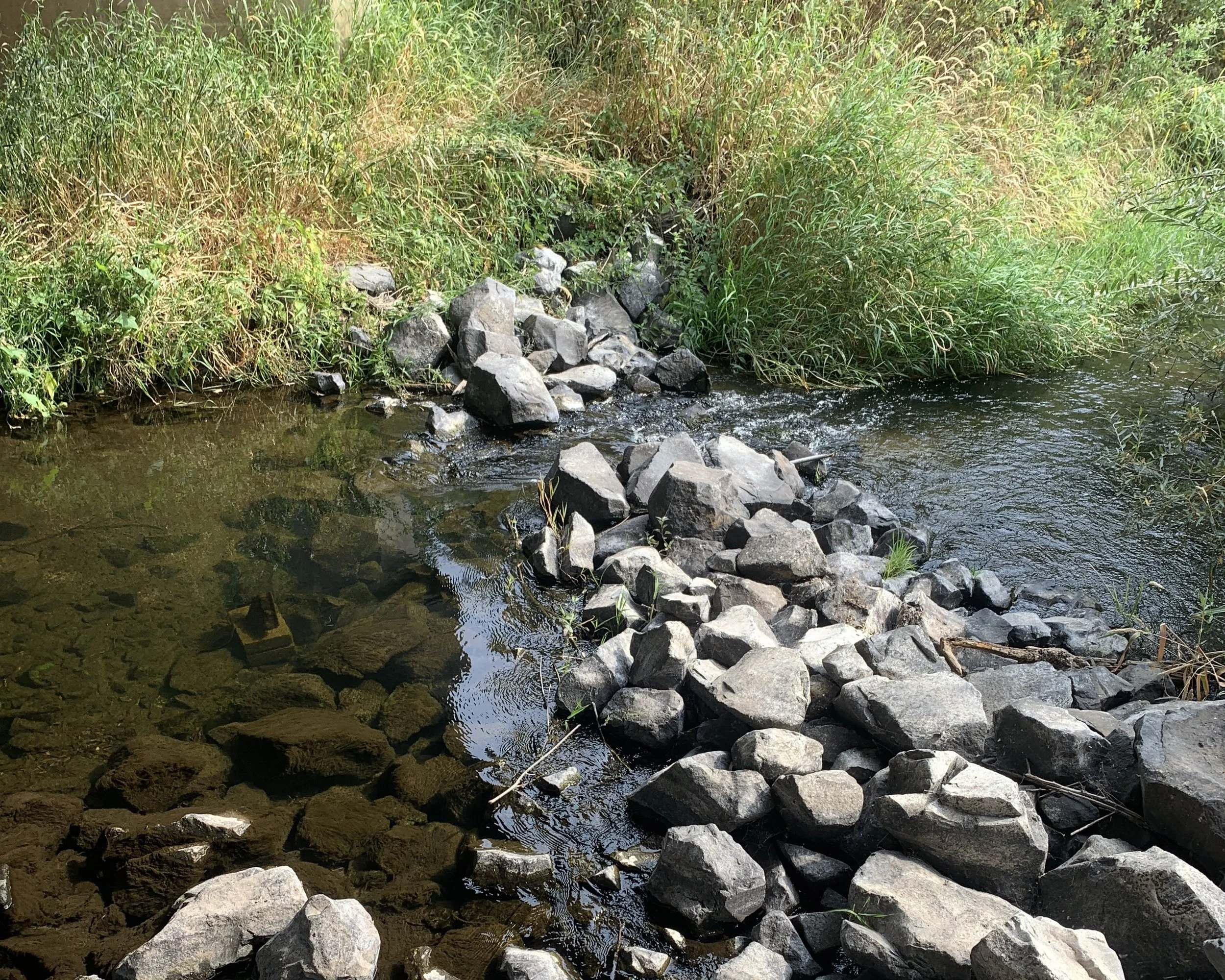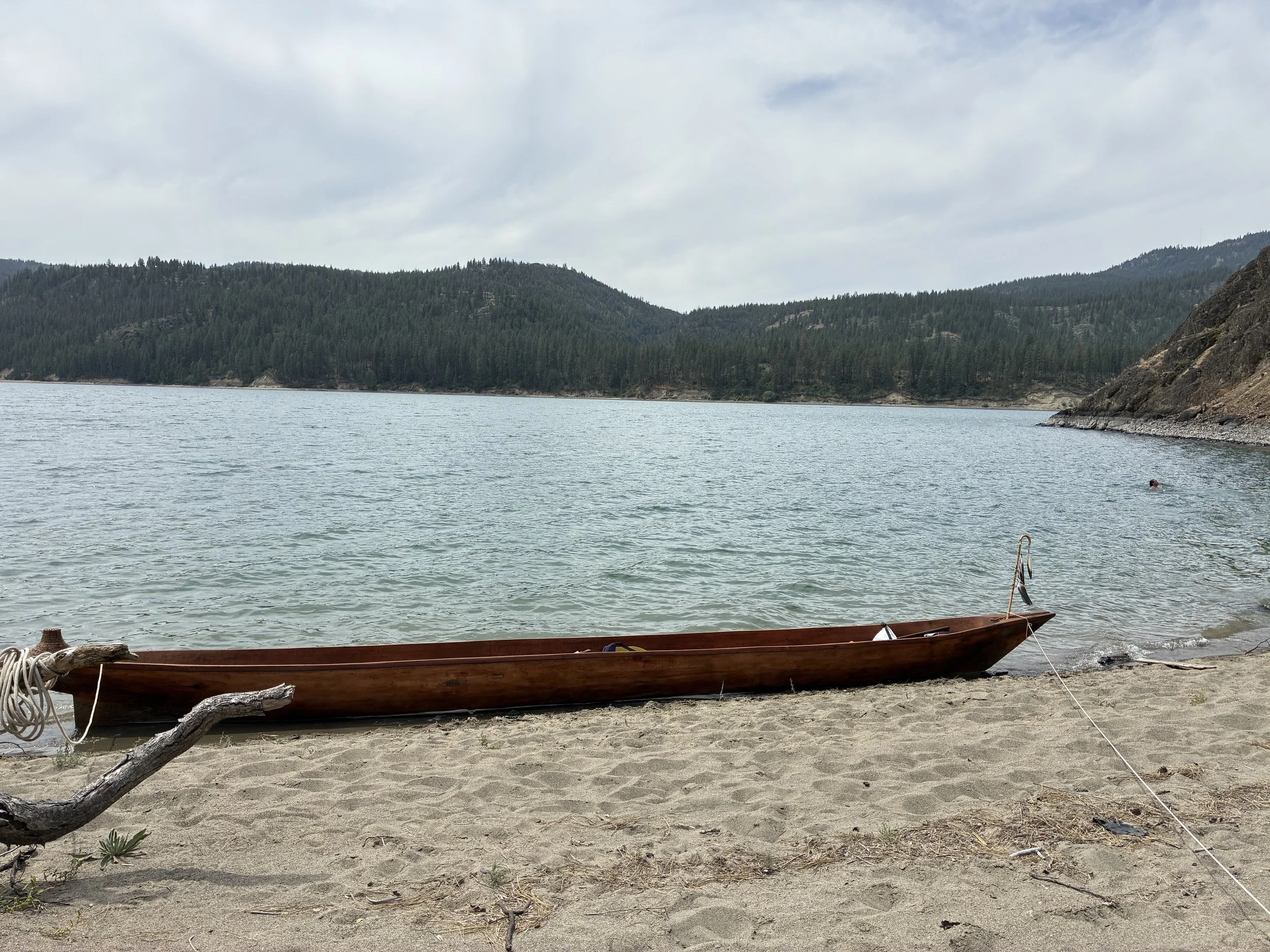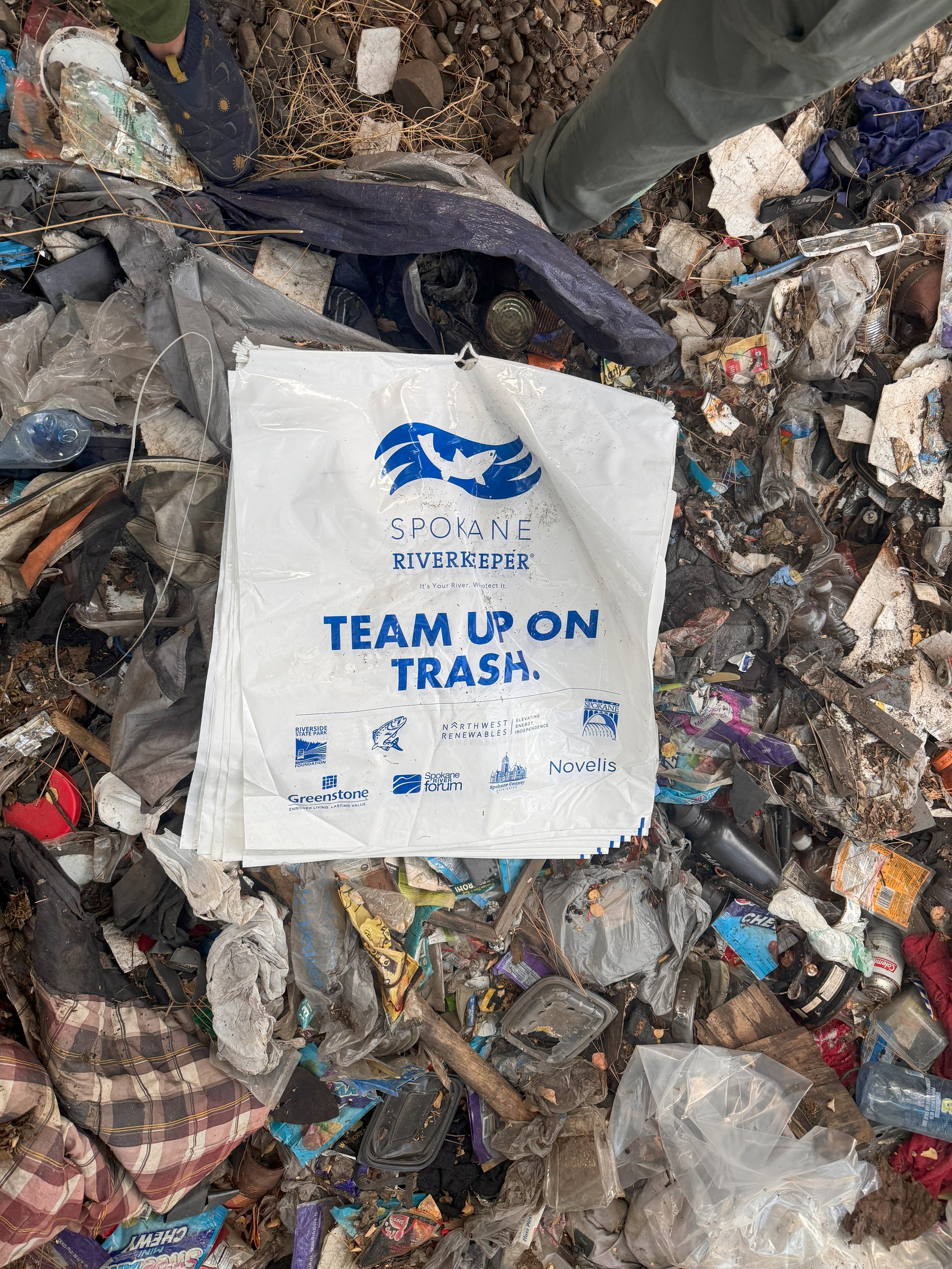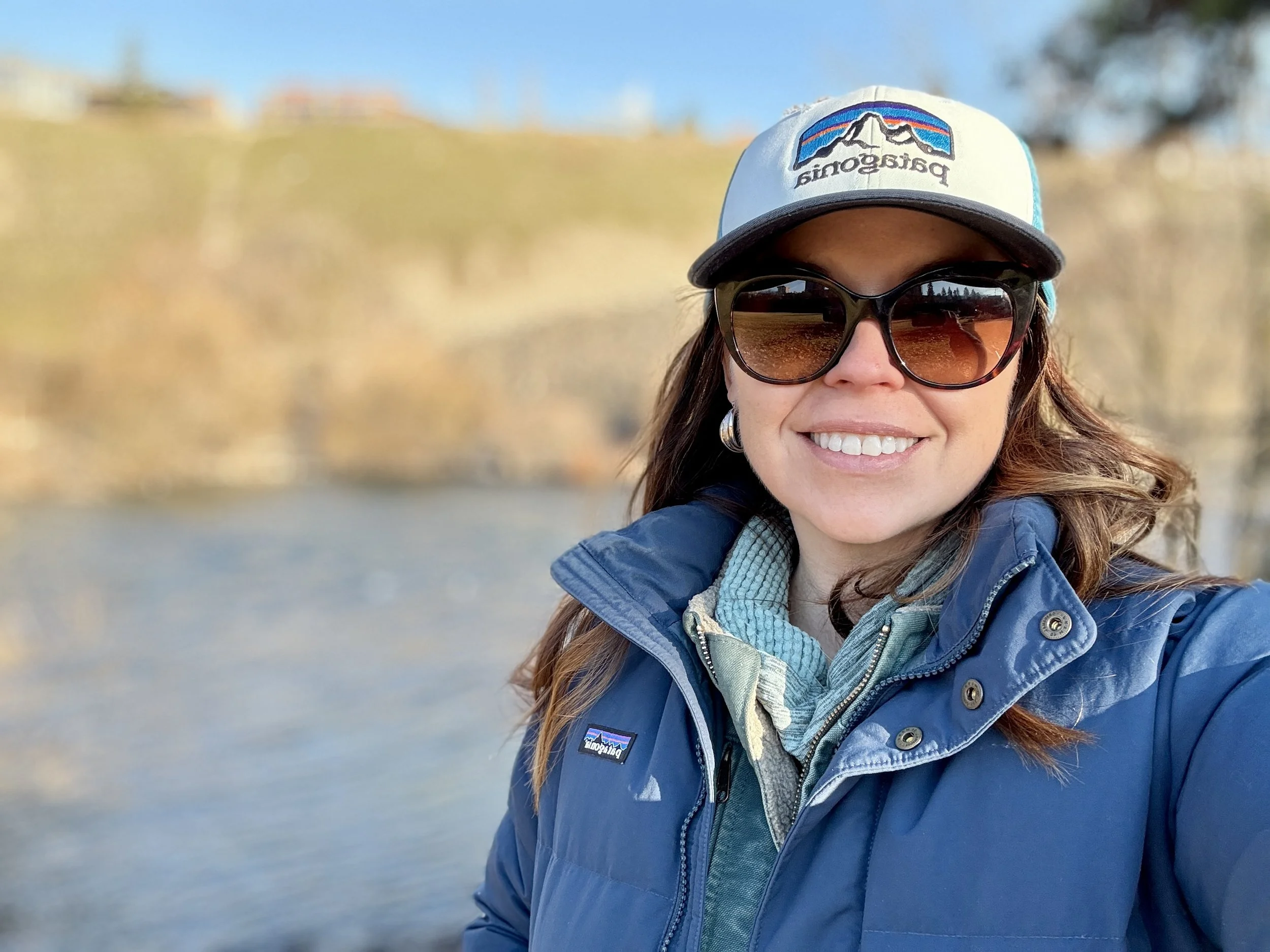We’re excited to be partnering with Wildland Cooperative, a brewery and farm collective rooted in sustainable agriculture and ethical business practices. Based in Green Bluff, just north of Spokane, WA, Wildland is committed to strengthening local food and beverage systems by supporting small-scale producers, environmental stewardship, and community connection. Learn more at wildland.coop.
As their on-water intern, I quickly realized this role was about much more than rafting. It was about learning technical river skills, stepping into leadership, and building lasting community connections.
Macroinvertebrates are powerful indicators of water quality and habitat. These aquatic bugs live in our local streams and rivers year round, making them susceptible to seasonal or intermittent pollution that may missed by water quality testing. Read on to find out what we found!
For years, Spokane Riverkeeper and our partners have removed tens of thousands of pounds of garbage from the Spokane River. We’ve worked alongside volunteers, outfitters, cities, and land managers to protect this treasured waterway—but the trash keeps coming back. We sent Ecology a letter and data asking for help.
Thank you to everyone who joined us for this year’s Paint & Paddle trip! We spent two unforgettable days immersed in the wild beauty of the Spokane River, paddling, painting, and connecting with one another and the landscape. See more from our journey here!
We're highlighting a partner whose support goes far beyond financial contributions. Numerica Credit Union has shown up time and again for the Spokane River—from sponsoring events to rolling up their sleeves at cleanups. Their recent gift through the CARES for Kids program is helping bring river-based science education to life for students at The Spokane Salish School. Read more about how Numerica is helping us build a cleaner, healthier, more connected future for the Spokane River and the community that depends on it.
In partnership with Waterkeeper Alliance and other Waterkeeper organizations across 19 states, Spokane Riverkeeper collected samples at sites upstream and downstream of wastewater treatment plant discharges and permitted biosolids application sites. The results show clear signs that biosolids—treated sewage sludge commonly used as fertilizer—are introducing high levels of PFAS into our environment.
Every June, families and allies take to the Spokane and Columbia Rivers to honor the salmon, carry tradition forward, and stand for justice. In this powerful reflection, Water Protector Katelyn Scott explores how environmental justice is deeply connected to Indigenous sovereignty, queer identity, and migrant rights—and why the river calls us to show up for all of it. From the falls to the protest line, the message is clear: the river connects us all.
One of the growing threats to our watershed is toxic pollution from PFAS, also known as “forever chemicals”—and one of our best tools to fight further degradation is regulation. The Clean Water Act provides many powerful regulatory tools that can stop PFAS pollution at the source—before it ends up in our drinking water, on our dinner plates, or in the river where we swim and play.
The Spokane Riverkeeper’s fun filled 2025 Earth Day River Cleanup removed 11,520 pounds of trash from our local waterways with over 400 volunteers! That was four full dump trucks! This work could not have happened without support from our partners, event volunteers, and the community!
Every drop of water tells a story, and the Mekong Delta speaks volumes. In late 2023, I found myself on an airplane heading to Southern Vietnam as part of a reciprocal exchange project through the YSEALI program. Surrounded by the meandering rivers, lush greenery, dense cities with traffic that flowed like water, and warm-hearted communities of the Mekong Delta, I witnessed firsthand how water is more than a necessity; it is a lifeline, a livelihood, and a legacy.
Ten years into Spokane’s cleanup plan, new data reveals real progress in reducing phosphorus pollution—but also reminds us that the work is far from over. Spokane Riverkeeper’s Water Protector Katelyn Scott reflects on the deeper story the river is telling us, and the path ahead for Long Lake and the life it supports.
After 10 years of river cleanup not much surprises me anymore. We’ve found everything from 100 year old wagon wheels to freshly dumped tires. During this time we’ve removed about 225,000 pounds of trash with almost 10,000 volunteers. This monumental effort by the community, and the support they’ve shown us solidifies one thing in my mind: Spokane wants a clean river.
In 2024, the River Cleanup Program aimed to restore and protect the Spokane River through coordinated efforts that involved local communities, volunteers, partner organizations, and city officials. Over the course of the year, we successfully removed 67,110lbs of trash with the help of 2,318 volunteers during 129 clean up events. This report highlights our major accomplishments, challenges, and the impact of our efforts, setting the stage for continued progress in the coming year.
On February 27th, The Garland Theater came alive with the magic of cinema and fly fishing as the 2025 International Film Festival took center stage. This year’s festival was a remarkable celebration of film, creativity, and community, attracting fly fishing enthusiasts, river supporters and movie popcorn lovers from throughout our region.
A minor flooding event on Hangman Creek in February increased sediment, debris, and pollutants in the Spokane River for over a week, leading to higher turbidity. These changes stress the river's ecosystem and affect water quality long-term.
If you’ve been near the confluence of Hangman (Latah) Creek and the Spokane River this week, you’ve seen it—the river running thick with brown sediment, turning the water into a muddy plume that stretches for miles downstream. This dramatic transformation comes after a major rain-on-snow event, where warm rain rapidly melted accumulated snow, saturating the soil and flushing huge amounts of sediment into the creek. These events aren’t new—but how common are they, and how have they changed over time? To answer that, we looked at historical hydrology data from 1948 to 2023 to see how this year’s event compares to past peak flows.
A new bill (SB 5712 and companion HB 1937) moving through the Washington Legislature could weaken clean water protections, give polluters a free pass, and strip the Department of Ecology of its ability to enforce industrial stormwater rules. If passed, it would make immediate changes to industrial stormwater management—without any public input.
We’re excited to announce an important new addition to the Spokane Riverkeeper team! Please join us in welcoming Anne Tenold as our new Development Manager.
For centuries, the Spokane River’s flow has been shaped by a predictable rhythm: snow falling in the mountains during the winter and melting in the spring to sustain the river through the dry summer months. But now, that rhythm is changing, and with it, the future of the river is being rewritten.





















